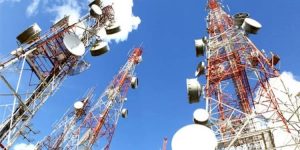By Alexander Chiejina
In the first quarter of 2023, Nigeria’s information and communications technology (ICT) sector significantly increased Nigeria’s GDP (real gross domestic product) by 17.47 percent, said the National Bureau of Statistics (NBS) most recent figures.
This represents nearly N3.1 trillion of the nation’s total N17.75 trillion real GDP for the quarter, according to the NBS statistics. The GDP contribution of the ICT sector has increased significantly, surpassing the N2.86 trillion recorded in the first quarter of 2022.
According to the NBS, the percentage contribution recorded in the first quarter of 2023 is higher than the 16.2 percent recorded in the same period the year before. This development shows the growing significance of ICT-related activities to the economy of the nation.
The ICT sector’s diverse range of endeavours saw telecoms emerge as the main engine of expansion. The telecoms sub-sector led the way with a growth rate of 10.32 percent year over year during the quarter under review, contributing 14.13 percent of the GDP in real terms. Following, the broadcasting sector made an actual contribution of 1.98 percent to the overall GDP.
The ICT sector not only significantly increased Nigeria’s GDP contribution, but it also showed impressive nominal growth. In Q1 2023, the sector’s contribution to the total nominal GDP was 13.23 percent, exceeding the percentages seen in both the same quarter the year before (10.55%) and the quarter before (10.42%). This nominal growth reflects a significant increase of 41.84 percent for the quarter, which is a rise of 21.30 percent points from the same period in 2022.
The National Bureau of Statistics (NBS) reports that Nigeria’s GDP growth slowed down, reaching 2.31 percent year-over-year in real terms during the first quarter of 2023. This reduction was attributed by the NBS to the negative consequences of a cash shortage that occurred during the quarter. Nevertheless, despite the difficulties, the non-oil sector became the main engine of the economy and made a considerable contribution to overall growth.

The non-oil sector was crucial, generating 93.79 percent of the growth overall, compared to the oil industry’s 6.21 percent. The services industry, which accounted for 57.29 percent of the total GDP, contributed the most among the non-oil sectors. The next two sectors to contribute were agriculture (21.66%) and industry (21.05%). Manufacturing accounted for 10.13 percent of the total, trade for 12.28 percent and finance and insurance for 5.35 percent.
The negative impacts of a cash shortage that occurred during the first quarter were mostly to blame for the fall in GDP growth. Due to a lack of funding, economic activity was significantly impacted, which resulted in a slower growth rate than in the previous quarter.
In Q1 2023, the average daily output of oil grew to 1.51 million barrels per day (mbpd). This was a little rise of 0.17 mbpd over the 1.34 mbpd recorded in the previous quarter. The average daily output of 1.51 mbpd was marginally greater than the 1.49 mbpd observed when compared to Q1 2022.
Despite these difficulties, Nigeria’s services industry became a major force behind GDP growth in the first quarter of 2023. It contributed 57.29 percent of the total GDP and experienced growth of 4.35 percent. The services sector’s strong success highlights the crucial role it plays in the economic structure of the nation.








